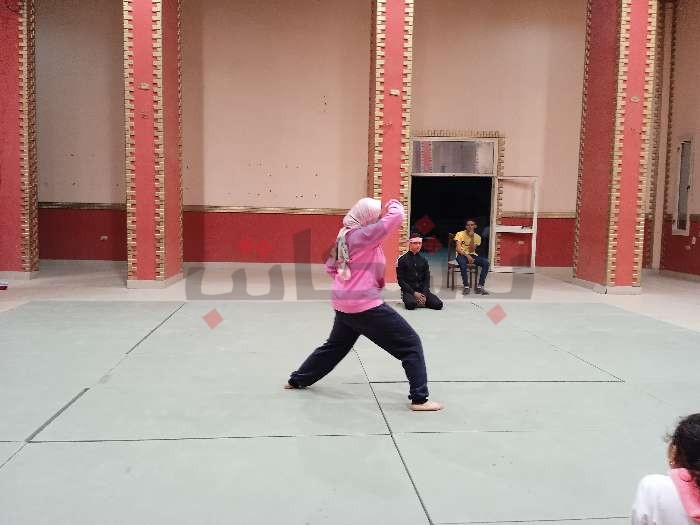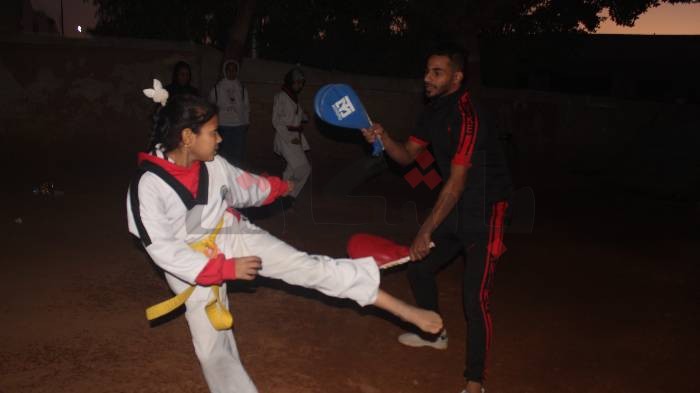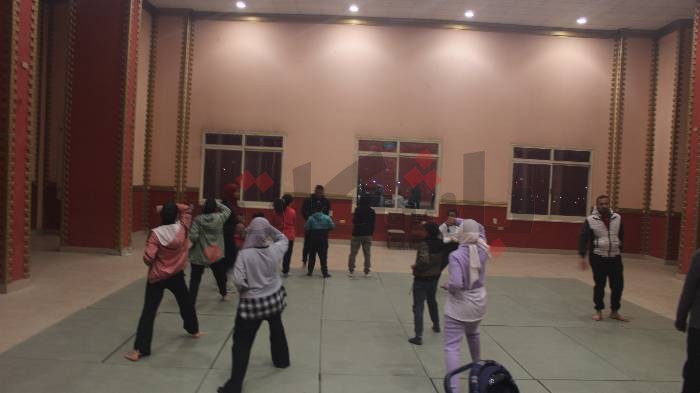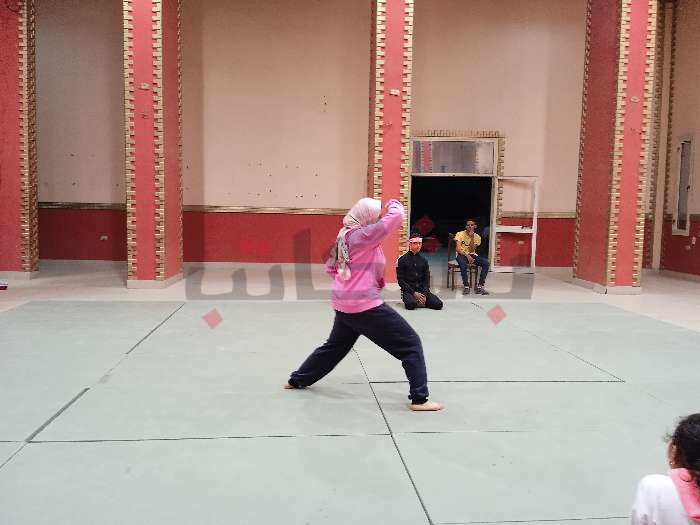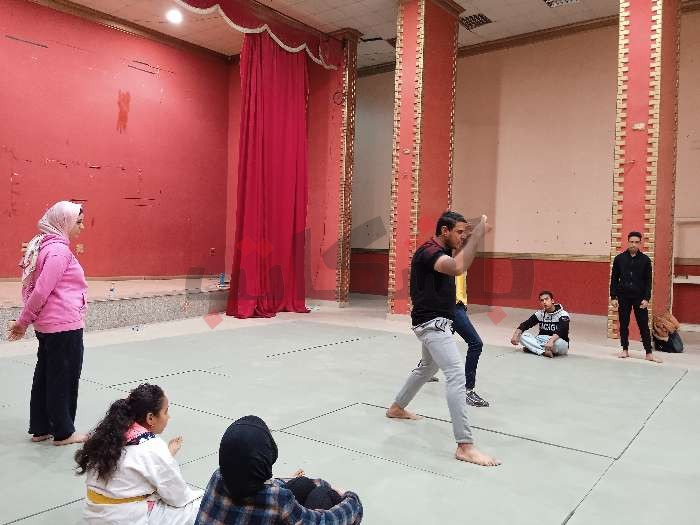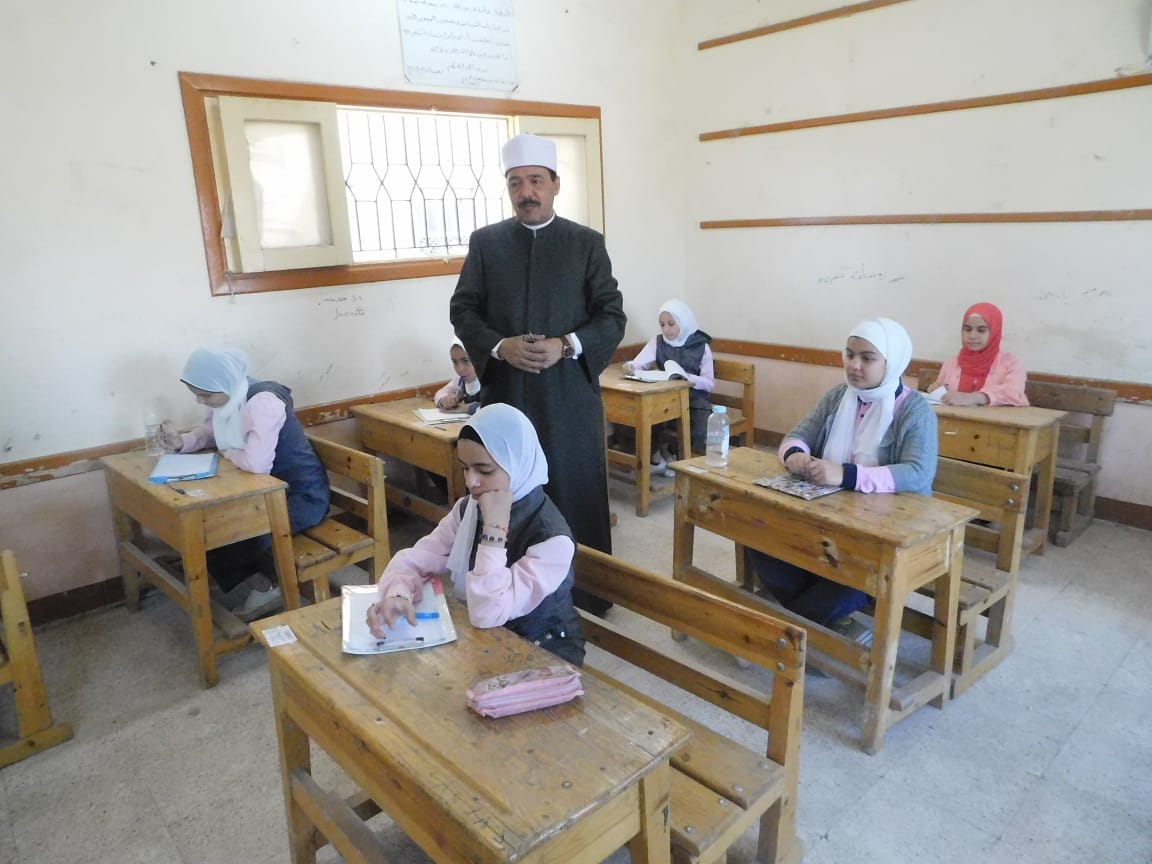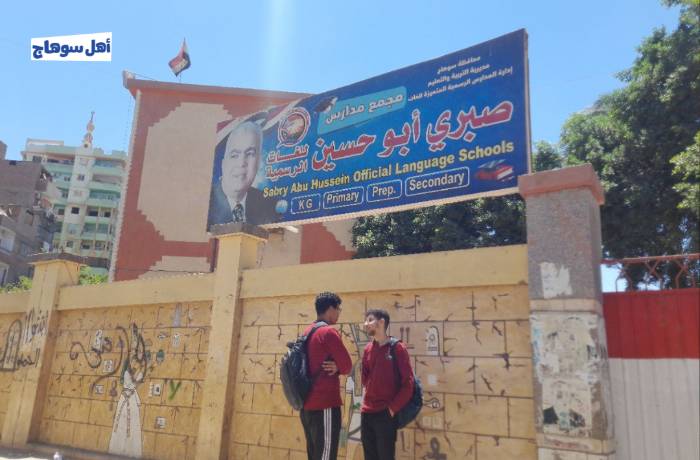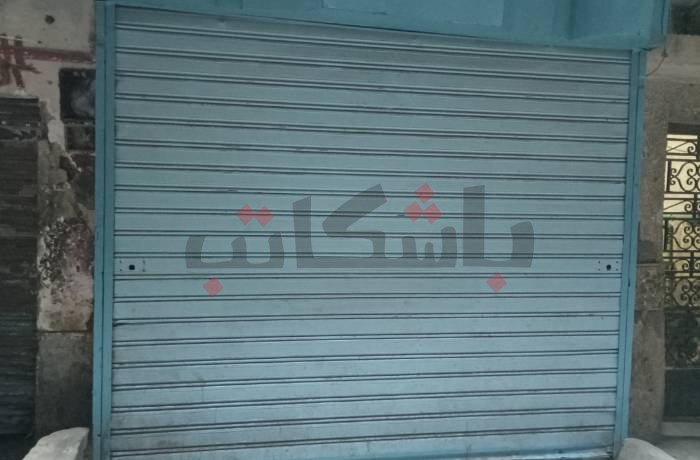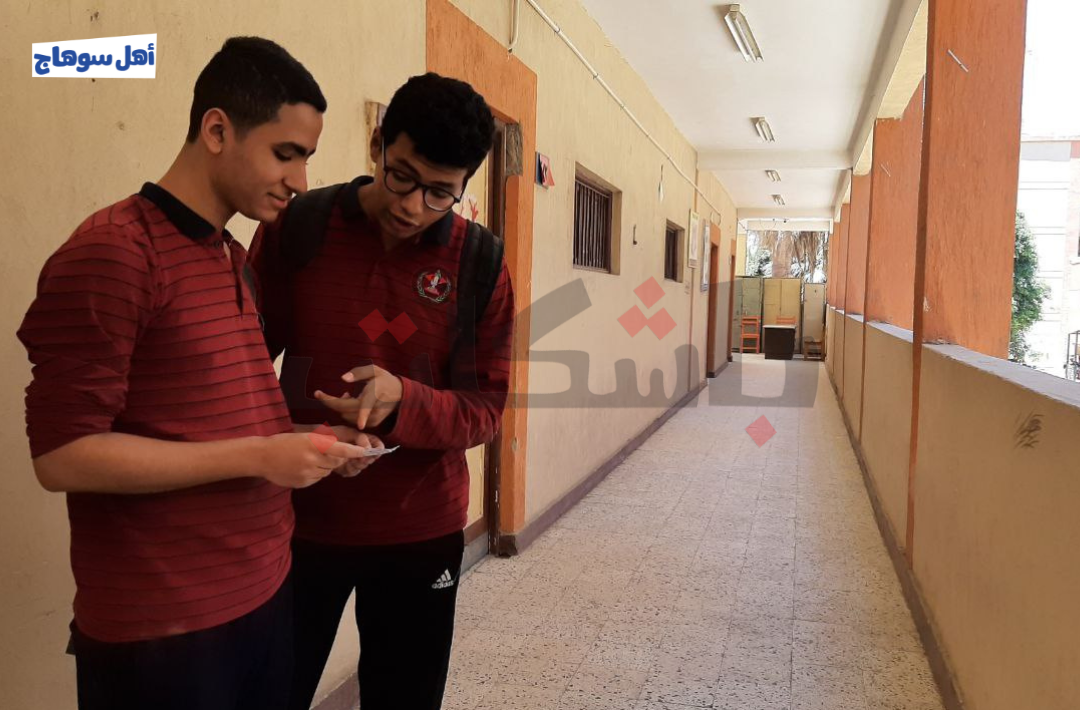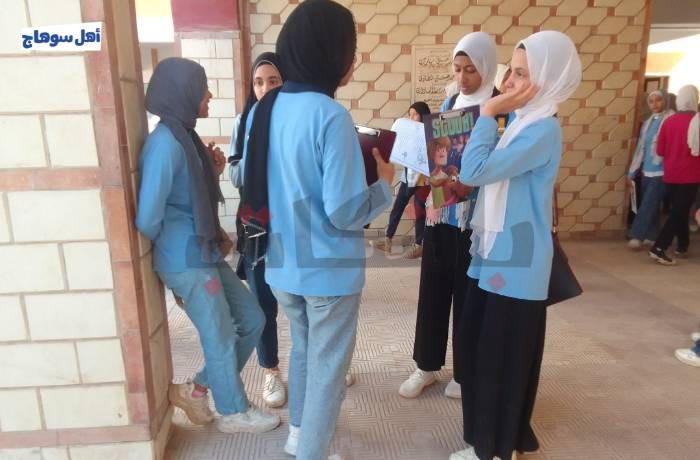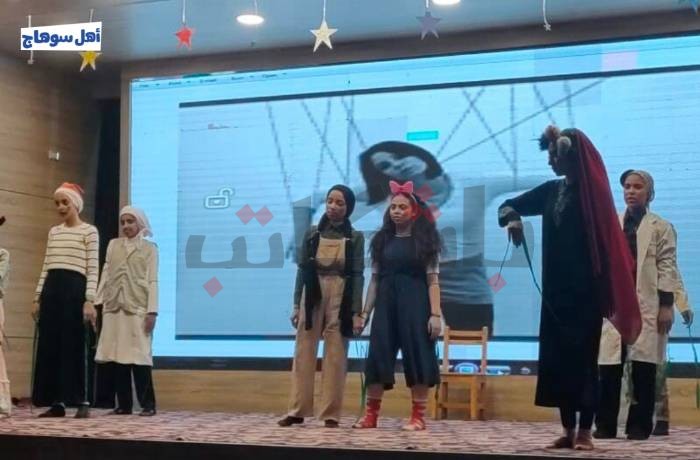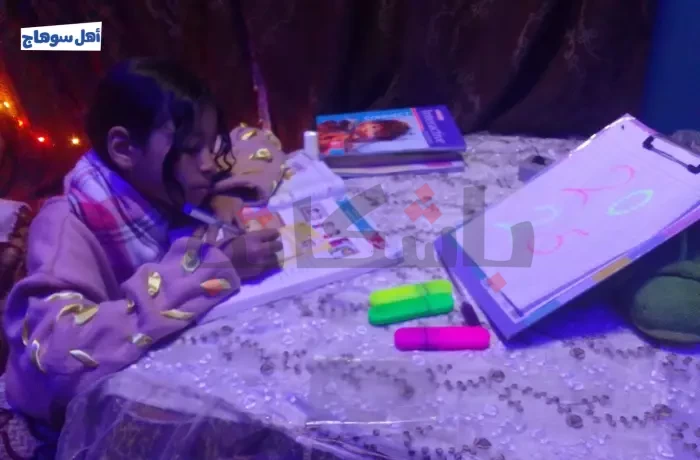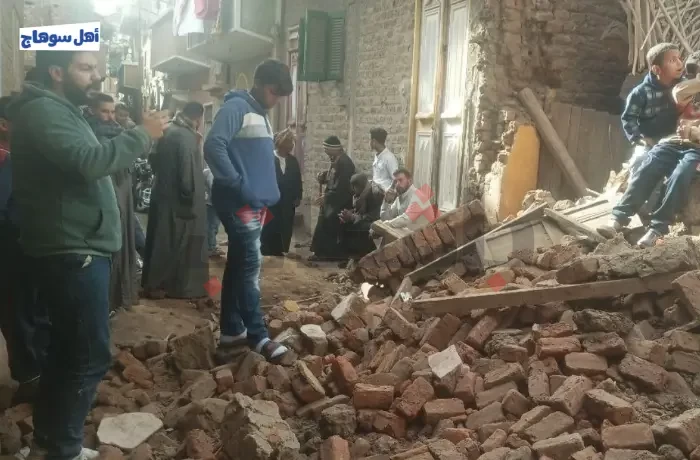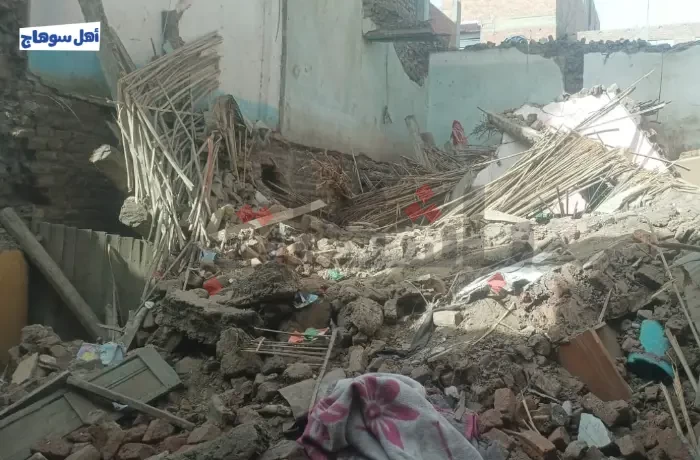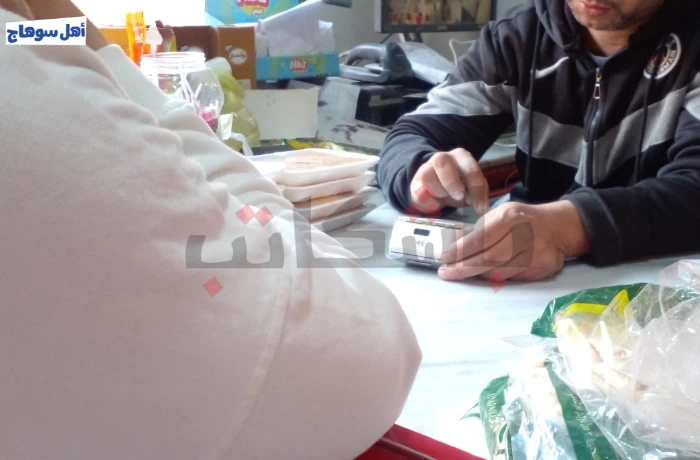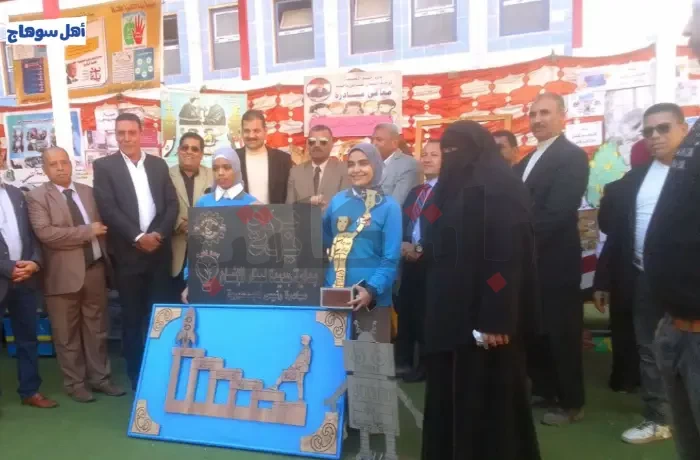Carrying her sports attire in her bag, Ashraqat Mohamed arrives at the Youth and Sports Center in Nasr City, affiliated with the Youth and Sports Directorate, to train in "Karate," both for self-defense and as a way to make the most of her time.
At the age of 15, Ashraqat had to navigate a struggle to get here, to convince her father who believes that sports are "for men," let alone a sport he perceives as aggressive like "Karate."
In Sohag, this challenge isn't exclusive to Ashraqat. Other girls face similar resistance when trying to engage in any type of sports, with increased opposition, particularly towards combat sports, even when it's for self-protection against the violence they face.
Ashraqat's mother managed to convince her father about the importance of training for her. Carrying a water bottle in her hand that she sips during breaks in training, she says to "Ahl Sohag: "Girls have the right to practice sports. There's no difference between us and boys. It requires dedication in training, something we can excel at from the start."
Ashraqat participated in three tournaments. Her passion in the first didn't lead to victory, but in the second and third, she secured second place.
When Ashraqat started training, it felt like she was starting where others had ended, despite the societal difficulties. That's what we saw when we interviewed Najwa Jamal, a Karate coach and the first female referee in Handball in Sohag.
Najwa faced much scrutiny from society, yet she established her role in Upper Egypt, saying to "Ahl Sohag": "I've loved practicing sports since childhood, but unfortunately, here, the only available sport is football played by kids in the streets, certainly not allowed for girls."
When she joined Sohag University, Najwa tried various sports: "Table tennis, running, football," supported by the university supervisors in her athletic endeavors.
Najwa adds: "My interest in different sports grew, until I specialized in Karate. I practice it after work, paying for the training myself. It's a sport not familiar to girls. It didn't spread due to societal misconceptions, especially in my village “Nagea Al-Naggar”, like the belief that practicing such aggressive sports endangers a girl's life and hampers her ability to have children."
Najwa extensively researched these ideas and found them to be wrong. When she began training, she faced a stream of questions and corrected misconceptions about the sport.
Abdullah Sabri, an assistant captain at the Nasr City Center, agrees with her, explaining that much societal resistance to girls' sports comes from widespread misconceptions. He says, "These sports are self-defense techniques for both genders, especially females, and they help build a healthy body."
However, he pointed out that some families support their daughters in sports, a positive aspect, despite existing negatives that they try to correct for future generations.
As proof of Sabri's statement, Najwa's father supported her, often in the face of anger and refusal from her brothers, who influenced their rejection of Najwa's attempt to participate in the national championship. After numerous attempts, their will gave in to their niece's request.
Like her father, Najwa received support from her mother when facing criticism from her village folks for practicing a violent sport like Karate. Her mother advised her: "Do what you believe is right, as long as it doesn't anger God.
Traditions weren't the only obstacle Najwa faced; poor nutrition was also an issue. She says, "The community I live in lacks any culture of healthy eating. I went to a nutritionist to solve the problem, but I couldn't afford to sustain a diet. Healthy food is expensive, and I cover all expenses from my own money."
Unfortunately, after facing numerous criticisms, Najwa had to stop practicing Karate, preferring to train in gym halls to avoid losing what she had achieved. She underwent official Karate training courses, saying, "I never imagined participating or even affording the expenses. Later, I began training children."
How did Najwa become a coach? She says, "During my training, I noticed many girls interested in Karate but couldn't find a female coach. That's what encouraged me to continue training. Now, I'm a member of the registration and examinations committee."
Najwa achieved several rankings in national tournaments, including third place in the Republican Championship Competition for "individual committees in the South Upper Egypt sector, Women's category, above 18 years old, weight 68 kg for the sports season 2020-2021."
For a girl like Dana Mustafa, a traditional Karate player at 6.5 years old, her mother, Sahar Abdelmoez, is a significant figure in her life. She says to "Ahl Sohag": "Dana's father didn't object to her practicing Karate. She's introverted, and the goal of this sport for her is to overcome that, to interact with people, something I notice now. This sport helps her defend herself if needed."
Musab Nasser, a Karate coach at a local club, points out another barrier for girls in sports: parents' refusal to allow their daughters to be trained by male coaches.
Hisham Ibrahim, a traditional Karate coach, adds, "In our current time, it's crucial for girls to defend themselves in various situations."
